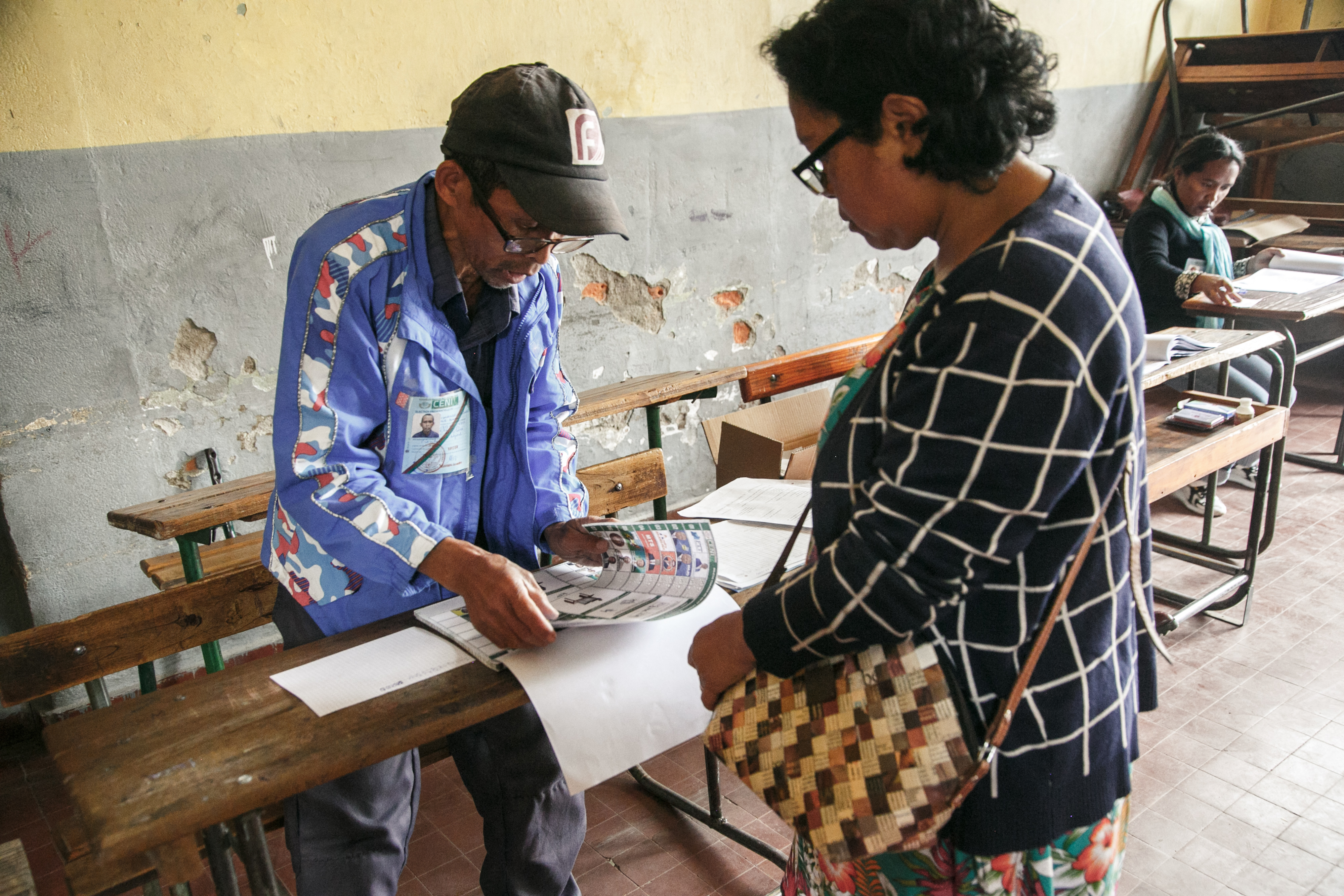
Voting has ended in Madagascar’s presidential election after a turbulent campaign marred by boycotts and allegations of election irregularities.
President Andry Rajoelina, a former DJ who first came to power with the backing of the army in 2009, is seeking a second consecutive term in office.
His opponents said Rajoelina should be disqualified, and they accused him of waging an “institutional coup” to stay in power.
Voting commenced smoothly on Thursday in the Indian Ocean nation, according to the Agence France-Presse news agency, despite an overnight curfew and months of protests leading up to the election.
There was a low-key security presence across the capital, Antananarivo, and turnout was low. People queued at polling stations in areas supporting Rajoelina while those in opposition neighbourhoods were mostly empty, according to the Reuters news agency.
Ten key opposition candidates called on voters to shun the elections.
They had organised street protests in Antananarivo almost every day in recent weeks. Police dispersed many with tear gas and arrested dozens of demonstrators.

“We appeal to everyone not to vote. Conditions for a transparent presidential election accepted by all have not been met,” Roland Ratsiraka, one of the protesting candidates, said this week.
“We do not want to participate in this fraud. It is a joke on Madagascar.”
Rajoelina has brushed off criticism and expressed confidence that he will secure re-election in the first round of voting.
He also warned his opponents that trying to prevent people from voting was unlawful.
“A handful of people tried to prevent citizens from expressing their choice. They have the right not to participate, but the populations have the right and the duty to vote,” he said after voting in Antananarivo’s northern neighbourhood of Atmobe, flanked by his wife and children.
Controversial re-election bid
Madagascar has been in turmoil since media reports in June revealed Rajoelina had acquired French nationality in 2014.
Under local law, the president should have lost his Madagascan nationality and with it the ability to lead the country, his opponents said.
Rajoelina has denied trying to conceal his naturalisation, saying he became French to allow his children to pursue their studies abroad and he has not been notified of any loss of his Madagascan nationality.
“The law is clear, but nobody is taking the responsibility to apply it properly,” said William Rasoanaivo, an award-winning political cartoonist known as POV, who is exiled in Mauritius.
Rajoelina’s challengers have been further angered by a ruling allowing an ally of the president to lead the nation temporarily after Rajoelina resigned in line with the constitution to stand for re-election.
They have also complained about electoral irregularities.
“People have become aware of the dictatorship we live under,” 55-year-old Malagasy resident Chrishani Andrianono said, complaining that after 11 years in power, Rajoelina had achieved little.
“We do not see what he did for us,” he said.
Other residents said they were primarily concerned about economic challenges in what is one of the world’s poorest countries.
“What matters to us first and foremost is getting by on a daily basis,” said Benedicte Lalaoarison, a 61-year-old underwear seller in the Analakely market in central Antananarivo.
Strong turnout needed
Rajoelina – who first took power in 2009 on the back of a coup, then skipped the following elections only to make a winning comeback in 2018 – has ploughed ahead despite the tensions.
As his opponents refused to campaign, he flew across the country by private plane, showcasing schools, roads and hospitals built during his tenure.
His campaign condemned those calling for a boycott, accusing them of trying to “sabotage” the vote and hold the nation “hostage”.
“It is irresponsible to encourage voters not to vote,” said Rajoelina campaign spokesperson Lalatiana Rakotondrazafy.
Eleven million people are registered to vote in the country of about 30 million people.
Facing a wide boycott, a strong turnout will be key for Rajoelina.
Less than 55 percent of those registered showed up for the first round of voting in the last election in 2018.
The opposition said in a statement late on Thursday that the participation rate was “the lowest in the entire history of Madagascar”, citing provisional figures from electoral observers.
“We confirm that the struggle continues and we will not stop until victory is achieved,” the statement said, according to Reuters.
The electoral body CENI said it did not yet have official figures and could not comment.
The island nation is the leading global producer of vanilla but has struggled with persistent poverty. Three-fourths of its people live in poverty.
Madagascar has been shaken by successive political crises since independence from France in 1960.







